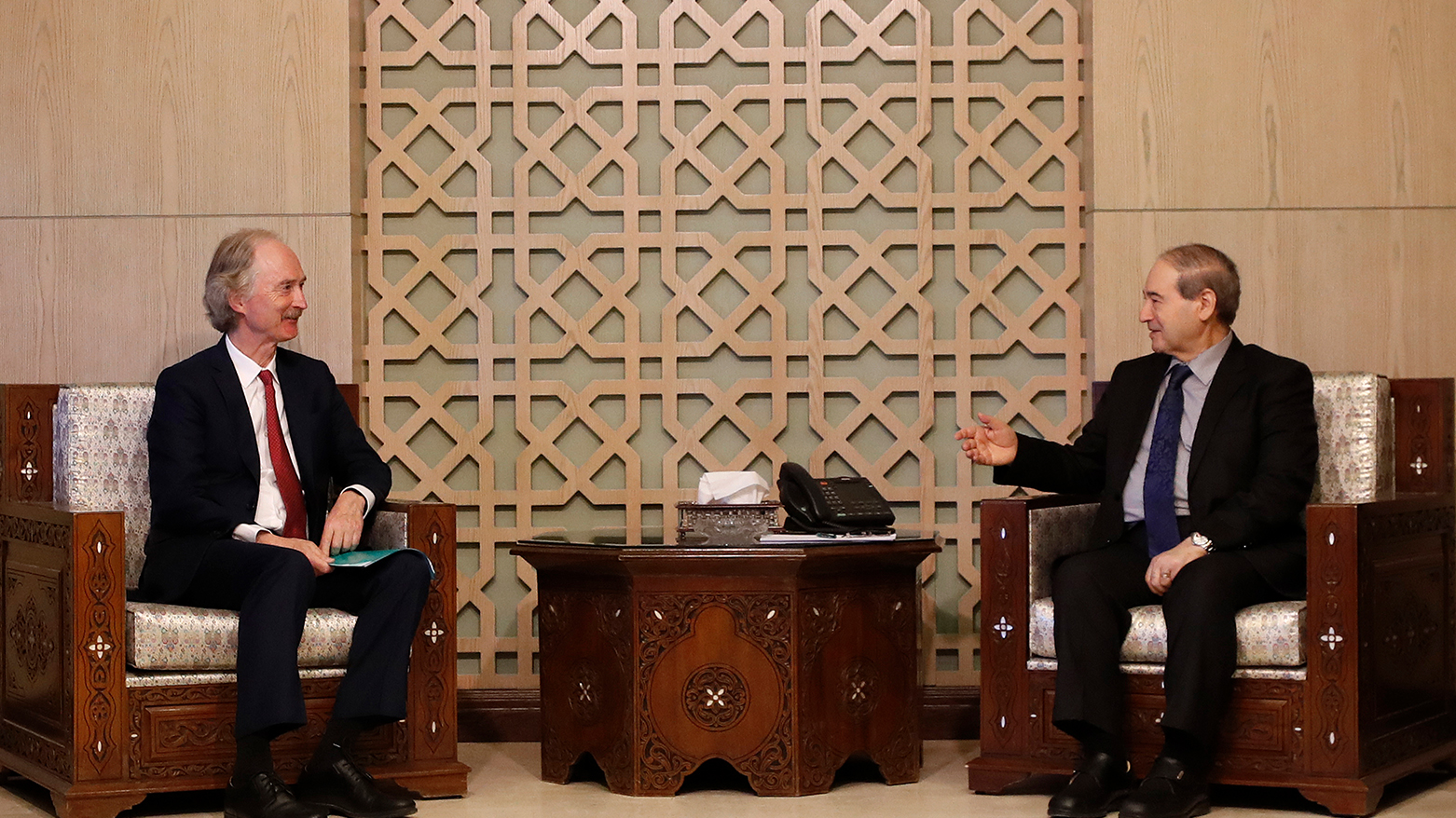UN envoy urges donor support for battered Syria facing an economic crisis

DAMASCUS, Syria (AP) — The United Nations special envoy for Syria Sunday urged donors not to reduce their funding as the war-torn country's economic crisis spirals.
Syrian President Bashar Assad’s decision last month to double public sector wages and pensions further skyrocketed inflation and fueled ongoing protests that shook the southern Druze-majority province of Sweida and nearby Daraa.
Initially sparked by deepening economic misery, angry residents in greater numbers began to call for the fall of Assad, similar to that of the country's 2011 uprising that turned into an all-out civil war.
The U.N. estimates that 90% of Syrians in government-held areas live in poverty and that over half the country's population struggles to put food on the table.
As the conflict, now in its 13th year, reached a stalemate Syrian government reclaimed large swathes of lost territory with the help of its key allies in Russia and Iran in recent years.
With international donor support dwindling, U.N. agencies have been cutting programs due to budget cuts for years.
The U.N. estimates that some 300,000 civilians died during the first decade of the uprising, while half of the pre-war population of 23 million were displaced.
“The situation inside of Syria has become even worse than it was economically during the height of the conflict,” U.N. special envoy for Syria, Geir Pedersen, told reporters in Damascus following a meeting with Syrian Foreign Minister Faisal Mekdad.
“We cannot accept that funding for Syria is going down while the humanitarian needs are increasing,” Pedersen said.
For years, the U.N. has been trying to restart stalled talks to reach a political settlement in Syria — including Syrian government representatives rewriting a constitution with a delegation representing opposition groups.
Now with the economic crisis and current revived relations Syria has established with Arab countries — that led to restoring its membership to the Arab League which was suspended in 2011 for the government’s brutal crackdown on protesters — has renewed talks on ways to overcome the political impasse.
“For Syria without addressing the political consequences of this crisis, the deep economic crisis and humanitarian suffering will also continue,” Pedersen said.
Syria's ongoing talks with the oil-rich kingdom of Saudi Arabia, Jordan, Iraq, and Egypt to address refugees, the blossoming illegal amphetamine Captagon, as well as the political and humanitarian crisis, have been slow.
Meanwhile, Russia and Iran have tried to push Syria and Turkey to rekindle ties, the latter backing opposition groups in northwestern Syria.
Pedersen said he will meet with Arab governments, as well as Turkey, Russia, and Iran to follow up on their respective talks' developments.
